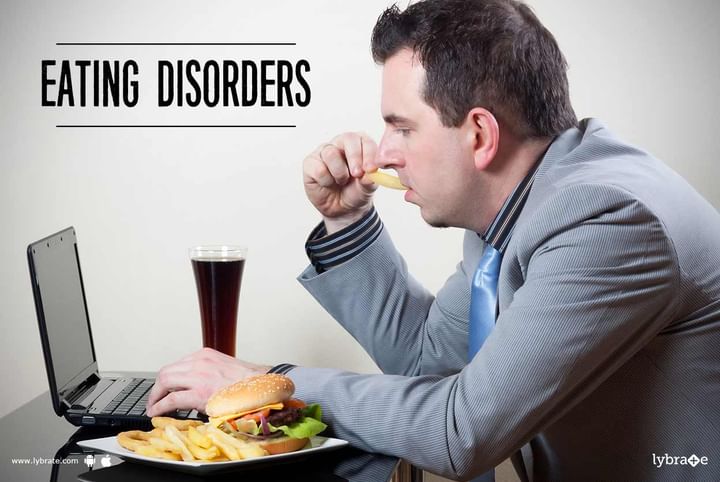Eating Disorders
There is a commonly held view that eating disorders are a lifestyle choice. Eating disorders are actually serious and often fatal illnesses that cause severe disturbances to a person's eating behaviors. Obsessions with food, body weight, and shape may also signal an eating disorder.
Signs and Symptoms of Common Eating Disorders are discussed below:
Anorexia Nervosa:
People with anorexia nervosa may see themselves as overweight, even when they are dangerously underweight. People with anorexia nervosa typically weigh themselves repeatedly, severely restrict the amount of food they eat, and eat very small quantities of only certain foods. Anorexia nervosa has the highest mortality rate of any mental disorder.
Symptoms:
- Extremely restricted eating
- Extreme thinness (emaciation)
- A relentless pursuit of thinness and unwillingness to maintain a normal or healthy weight
- Intense fear of gaining weight
- Distorted body image, a self-esteem that is heavily influenced by perceptions of body weight and shape, or a denial of the seriousness of low body weight
Other symptoms may develop over time, including:
- Thinning of the bones (osteopenia or osteoporosis)
- Mild anemia and muscle wasting and weakness
- Brittle hair and nails
- Dry and yellowish skin
- Growth of fine hair all over the body (lanugo)
- Severe constipation
- Low blood pressure, slowed breathing and pulse
- Damage to the structure and function of the heart
- Brain damage
- Multiorgan failure
- Drop in internal body temperature, causing a person to feel cold all the time
- Lethargy, sluggishness, or feeling tired all the time
- Infertility
Bulimia Nervosa:
People with bulimia nervosa have recurrent and frequent episodes of eating unusually large amounts of food and feeling a lack of control over these episodes. This binge-eating is followed by behavior that compensates for the overeating such as forced vomiting, excessive use of laxatives or diuretics, fasting, excessive exercise, or a combination of these behaviors. People with bulimia nervosa usually maintain what is considered a healthy or relatively normal weight.
Symptoms:
- Chronically inflamed and sore throat
- Swollen salivary glands in the neck and jaw area
- Worn tooth enamel and increasingly sensitive and decaying teeth as a result of exposure to stomach acid
- Acid reflux disorder and other gastrointestinal problems
- Intestinal distress and irritation from laxative abuse
- Severe dehydration from purging of fluids
- Electrolyte imbalance (too low or too high levels of sodium, calcium, potassium and other minerals) which can lead to stroke or heart attack
Binge-eating Disorder:
People with binge-eating disorder lose control over his or her eating. Unlike bulimia nervosa, periods of binge-eating are not followed by purging, excessive exercise, or fasting. As a result, people with binge-eating disorder often are overweight or obese. Binge-eating disorder is the most common eating disorder.
Symptoms:
- Eating unusually large amounts of food in a specific amount of time
- Eating even when you're full or not hungry
- Eating fast during binge episodes
- Eating until you're uncomfortably full
- Eating alone or in secret to avoid embarrassment
- Feeling distressed, ashamed, or guilty about your eating
- Frequently dieting, possibly without weight loss
Unspecified Eating Disorder:
- This happens when the behavior do not meet the criteria for any food or eating problems but still pose significant threat and problems.
- This also happens the clinician is not able to assess whether an individual is affected by a certain disorder.
Treatment:
Treatment is available. Recovery is possible.
Eating disorders are serious health conditions that can be both physically and emotionally destructive. People with eating disorders need to seek professional help. Early diagnosis and intervention may enhance recovery. Eating disorders can become chronic, debilitating, and even life-threatening conditions.
When you begin to notice that disordered eating habits are affecting your life, your happiness, and your ability to concentrate, it is important that you talk to somebody about what you are going through.
The most effective and long-lasting treatment for an eating disorder is some form of psychotherapy or psychological counseling, coupled with careful attention to medical and nutritional needs. Ideally, this treatment should be tailored to the individual and will vary according to both the severities of the disorder and the patient's particular problems, needs, and strengths.



+1.svg)
